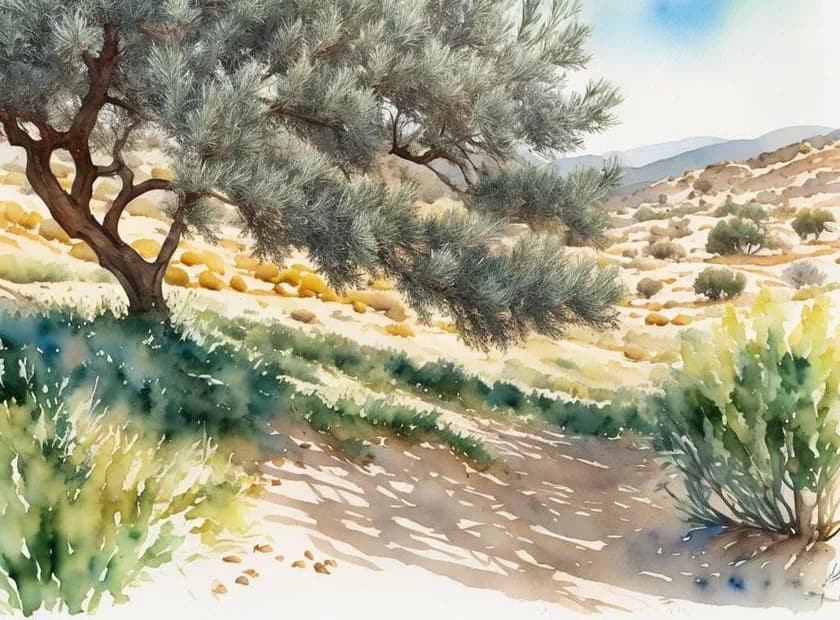The olive tree has sacred significance in various religious traditions, including Christianity and Islam. It’s a symbol of peace, abundance, and divine blessing.
The olive tree (Olea europaea) indeed holds significant cultural and religious symbolism in various traditions, particularly in Judaism, Christianity and Islam.
Here’s a brief overview of its significance in these religions:
In Christianity
- In Christianity, the olive tree is a powerful symbol of peace, reconciliation, and divine blessing. It is prominently featured in the Bible, particularly in the Old and New Testaments.
- One of the most well-known references is the story of Noah’s Ark in the book of Genesis. After the floodwaters receded, a dove brought an olive branch to Noah, symbolizing the end of God’s wrath and the beginning of a new era of peace and renewal.
- In the New Testament, the Garden of Gethsemane, where Jesus prayed before his crucifixion, is known for its ancient olive trees. This garden is considered a sacred site by Christians.
- Olive oil, extracted from olives, is used in various Christian rituals, including anointing during baptisms and the sacrament of the anointing of the sick.
In Islam
- In Islam, the olive tree and its products, such as olives and olive oil, are highly regarded. The Quran mentions the olive tree in several verses.
- One of the most notable references is in Surah An-Nur (The Light), where it is described as a blessed tree, symbolizing light and guidance.
- Olive oil has a significant role in Islamic traditions. It is used for anointing, in perfumes, and for cooking, and is considered beneficial for health.
- The use of olive oil and olives has been associated with numerous health and spiritual benefits in Islamic culture.
In Judaism
In Judaism, the olive tree and its products, particularly olives and olive oil, also hold cultural and religious significance. Here are some ways in which the olive tree is meaningful in Judaism:
- Symbol of Peace and Prosperity: Similar to Christianity and Islam, the olive tree is a symbol of peace in Judaism. It is often associated with the concept of shalom, which means peace, completeness, and well-being. The olive branch is a symbol of peace and is mentioned in the Hebrew Bible (Old Testament) as a sign of reconciliation and harmony.
- Use in Religious Rituals: Olive oil is an important component in various Jewish religious rituals and ceremonies. It is used for anointing in the consecration of priests and kings in the Hebrew Bible. Olive oil is also used in the lighting of the menorah, a seven-branched candelabrum, during Hanukkah, the Festival of Lights.
- Olive Oil for Cooking: Olive oil is commonly used in Jewish cuisine for cooking and in various traditional dishes. It is a staple in Mediterranean and Middle Eastern Jewish culinary traditions.
- Olive Trees in the Land of Israel: Olive trees have been cultivated in the land of Israel for thousands of years. The olive tree is often seen as a symbol of the connection between the Jewish people and the land of Israel.
- Spiritual and Historical Significance: Olive trees are known for their longevity, and some ancient olive trees in the region are believed to be centuries old. These ancient trees are seen as a link to the past and are revered for their historical significance.
Overall, in Judaism, the olive tree represents peace, prosperity, and spiritual connections to the land and heritage. It plays a role in both religious rituals and everyday life, making it an important symbol in Jewish culture and tradition.
Species, characteristics, botanical information, use, ecological importance
Information about the olive tree (Olea europaea) including its species, characteristics, botanical information, uses, and ecological importance:
Species
- Scientific Name: Olea europaea
- Common Name: Olive tree
- Family: Oleaceae
Characteristics
- The olive tree is an evergreen tree that can reach a height of up to 40 feet (12 meters).
- It has narrow, silver-green leaves that are adapted to conserve water, with a leathery texture and a silvery underside.
- The trunk of an older olive tree is often gnarled and twisted, giving it a distinctive and ancient appearance.
- Olive trees produce small, fragrant white flowers in the spring, which eventually develop into olives.
- Olives themselves vary in size, shape, and color depending on the variety, but they are typically small, oval, and green when unripe, turning purplish-black when ripe.
Botanical Information
- Olive trees are native to the Mediterranean region but are now cultivated in many parts of the world with suitable climates.
- They have a deep root system that helps them access water even in arid conditions.
- Olive trees have been cultivated for thousands of years, and there are numerous cultivars and varieties with different characteristics and flavors.
Uses
- Olives are primarily grown for their fruit, which can be processed and used in various culinary ways. They are commonly used to produce olive oil, which has culinary, cosmetic, and industrial uses.
- Olive oil is a staple in Mediterranean cuisine and is used for cooking, salad dressings, and as a condiment.
- Olives themselves can be enjoyed as a snack, used in salads, or incorporated into various dishes.
- Olive wood is valued for its durability and is used in making furniture, utensils, and decorative items.
Ecological Importance
- Olive trees play a crucial role in the ecosystems of the Mediterranean region and other areas where they are cultivated. They provide habitat and food for various wildlife species.
- The deep root system of olive trees helps prevent soil erosion and contributes to soil stability.
- Olive groves can have a positive impact on soil and water conservation, as they are often grown on terraces, which reduces water runoff and soil erosion.
- The cultivation of olive trees can promote biodiversity, as it creates a mosaic of habitats that can support a variety of plant and animal species.
- Olive oil production often involves traditional, sustainable farming practices that are environmentally friendly.
The olive tree is not only important for its cultural and culinary significance but also for its ecological contributions in regions where it is cultivated. It plays a vital role in preserving soil, promoting biodiversity, and supporting sustainable agriculture practices.
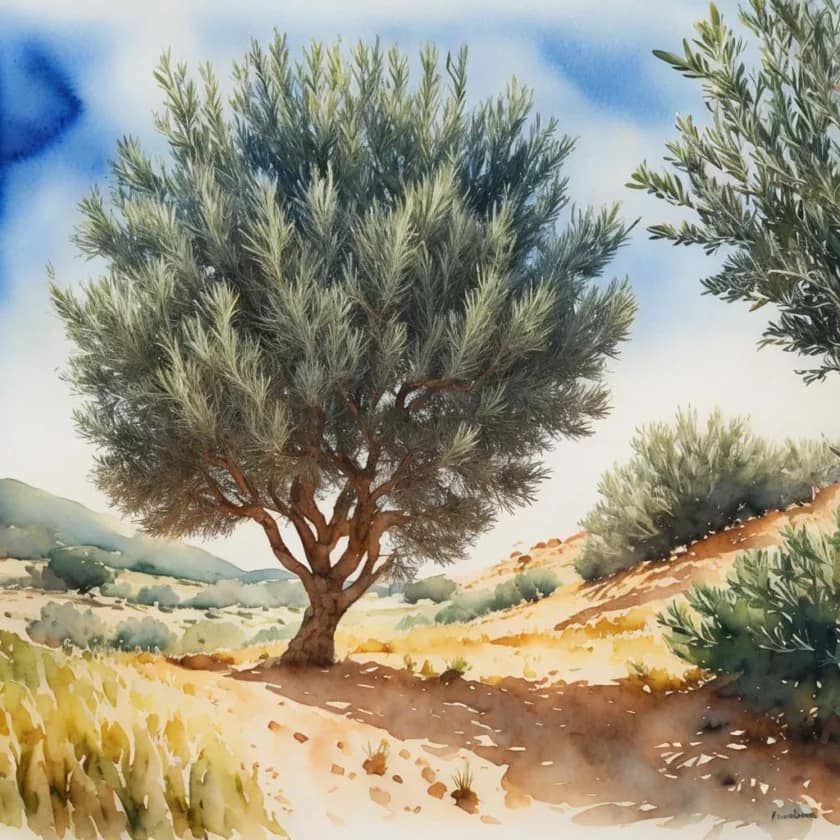
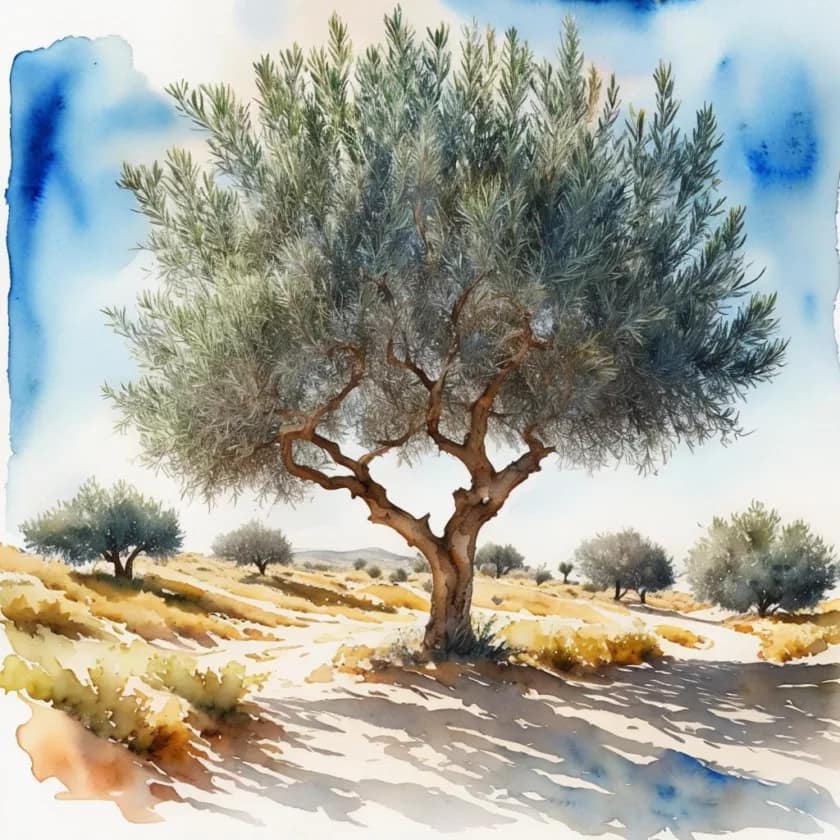
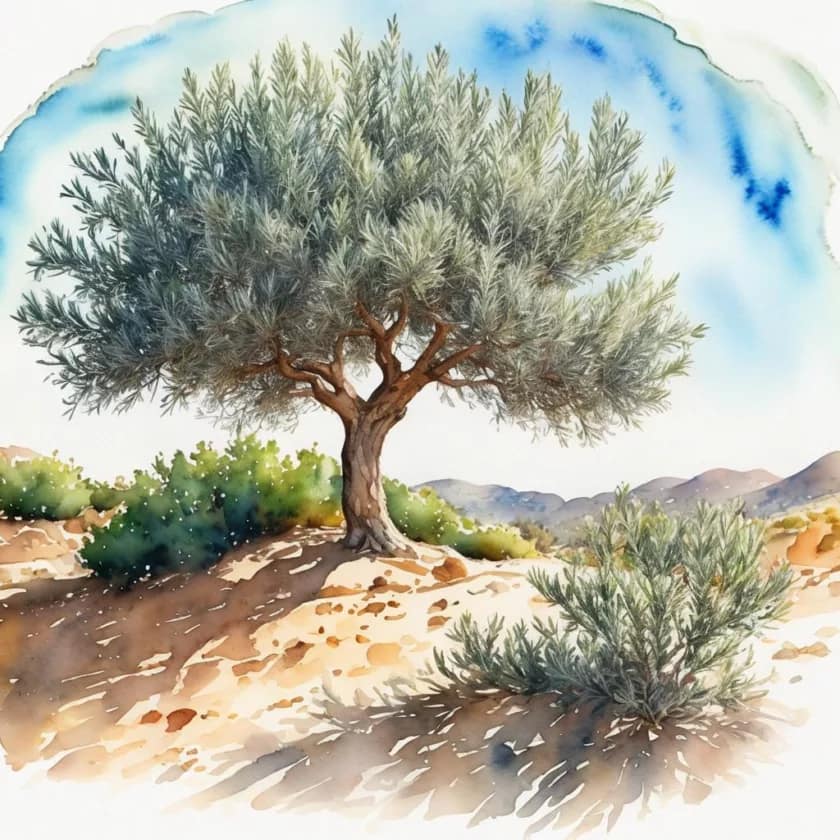
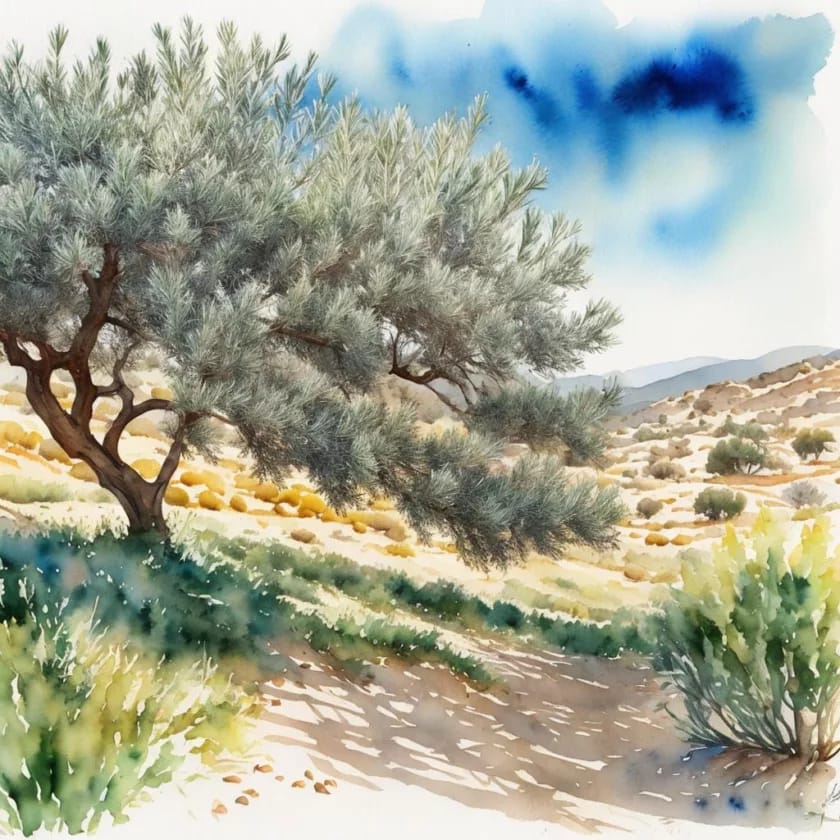
Shop tip
Botanicus Plus a GPT for starters and experts
Botnicus Plus boasts an array of new features, enhancing its global appeal and user interaction. These include: 1) Multilingual Support for accessibility in various languages. 2) Virtual Tours of famous botanical gardens and historical plant sites. 3) A Botanical Identification Tool for users to upload and identify plants. 4) Seasonal Guides and Tips tailored to local climates and regions. 5) Opportunities for users to engage in Collaborative Projects and Citizen Science Initiatives. 6) Advice on Sustainable Gardening Practices. 7) Interactive Q&A Sessions with botany experts. 8) Personalized Plant Care Reminders for gardeners. These features enrich Botnicus Plus’s mission to provide comprehensive, interactive, and culturally rich botanical education, fostering a deeper connection with the natural world.
Enjoy!👒
Invest in your future
Take time to learn
Embark on your journey in affiliate marketing and website creation alongside an incredible community and myself. Invest in your future by dedicating time to learn and earn. Take all the time you need to master the basics before aiming higher. Give it a try and sign up for free. You won't regret it! Discover the possibilities for yourself...

